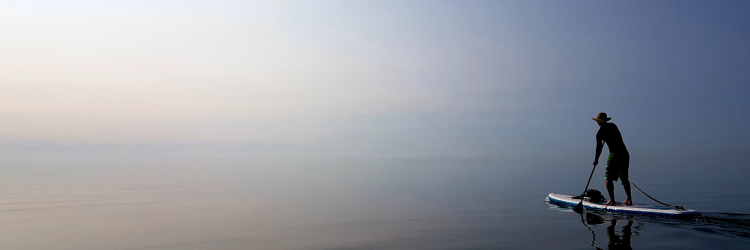I am baking in Northern California, where the temperature is to hit 114 degrees today, as part of a four-day stretch with highs above 110 and a 10-day stretch with highs projected to be above 105. So, I have zero reason to doubt the effects of climate change. But a question has been slowly forming in my head: Where are all the hurricanes?
Almost all the predictions this spring were for another worse-than-normal season, following a stretch of six years that saw five of the 11 most destructive hurricane seasons on record in the U.S. Yet not a single named tropical storm formed in August, the first time that has happened since satellites started monitoring the Atlantic in 1967.
In fact, no named tropical storm had formed since July 3. Two have formed thus far in September, one that has become a hurricane (Danielle) and one that is expected to do so shortly (Earl), but both are expected to head north and dissipate without making landfall. So, we are now past what is expected to be the peak of the hurricane season, and it's looking wonderfully quiet.
What is going on?
A generally cited reason is "the strong subtropical-tropical sea surface temperature gradient. This strong gradient increases the temperature differential between the subtropics and tropics, which can help increase frontal activity into the tropics, increasing shear and bringing in dry air too," said Dr. Phil Klotzbach, lead forecaster at Colorado State University.
For us non-meteorologists, that translates as: Water in the North Atlantic is at record warm temperatures, but water in the central Atlantic is closer to average or even a bit below. The greater-than-usual difference in temperature seems to be creating high winds that are breaking up tropical storms before they can form.
In even simpler terms: We're getting lucky.
Forecasters acknowledge that they don't truly understand what's happening -- some also cite unusually dry air over the Atlantic or sand blowing off the Sahara as reasons major storms may not be forming. They also note that there is still plenty of time for hurricane activity to catch up to earlier expectations: September is typically the worst month of the season. And, of course, it only takes one massive hurricane making landfall to cause tens of billions of dollars of property damage and threaten lives.
But, for now, we can hope for the best. Maybe often-battered communities can get a break, and insurers can build reserves for future hurricane seasons.
I'll be following the issue closely -- from inside, with the air-conditioning on.
Cheers,
Paul


